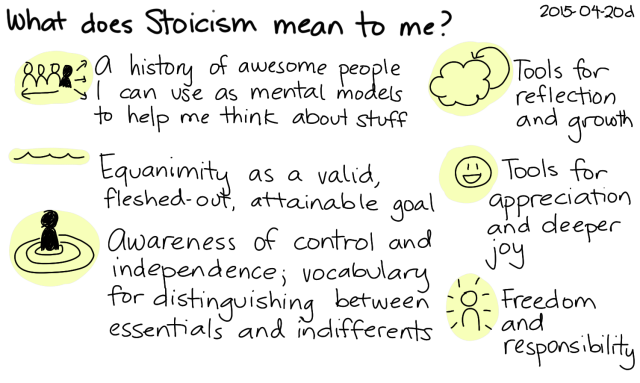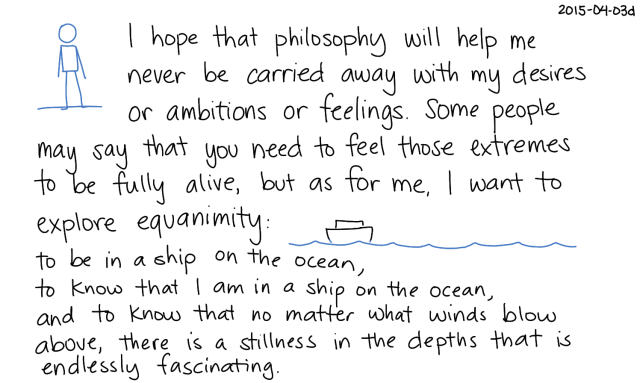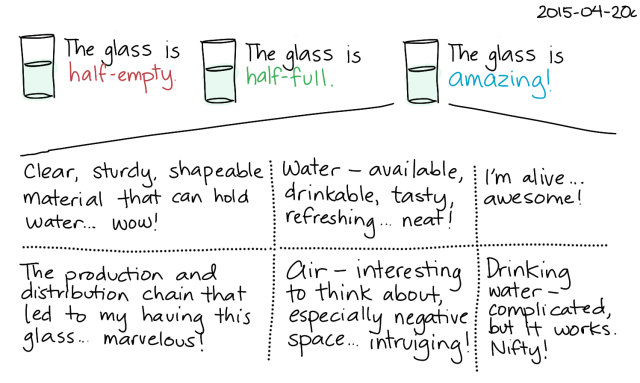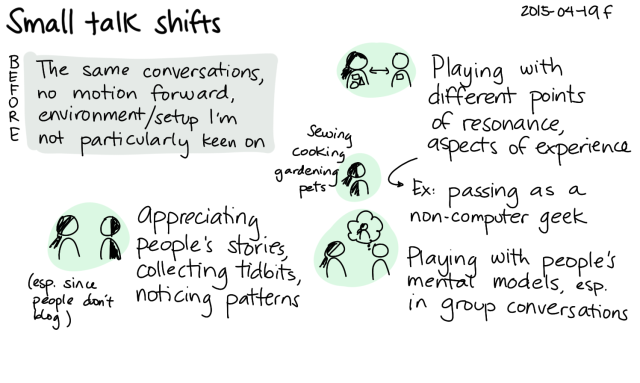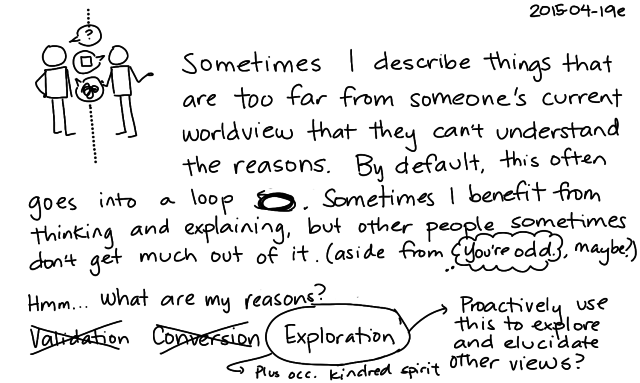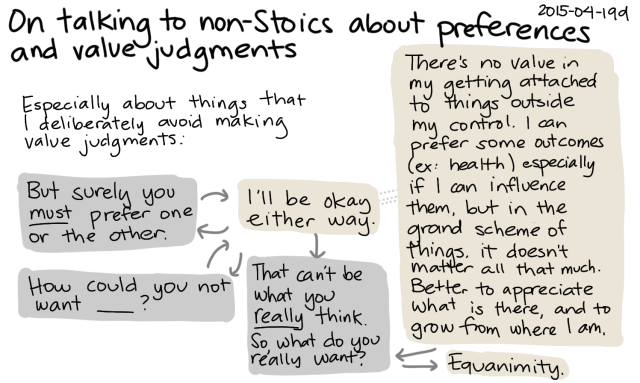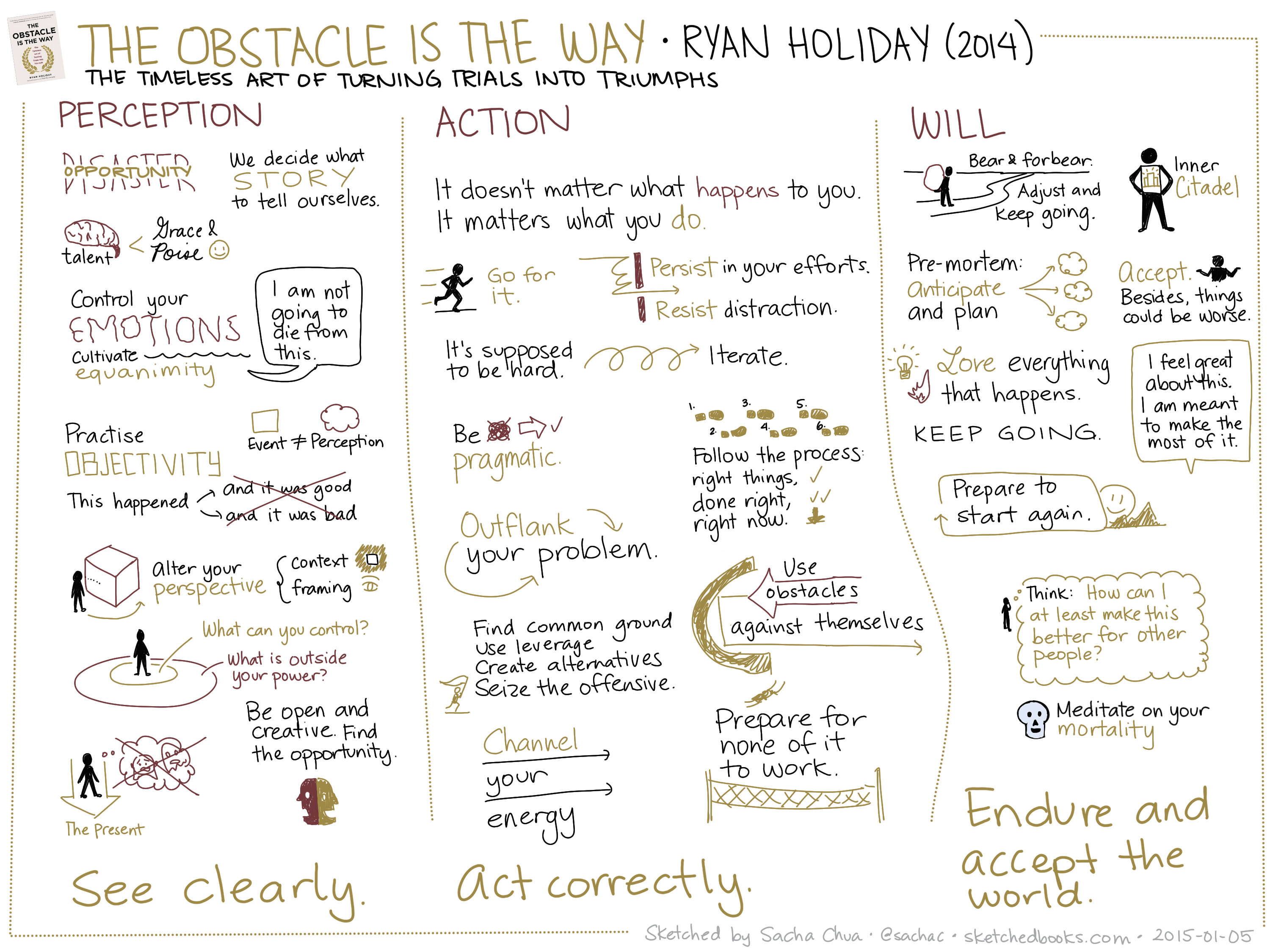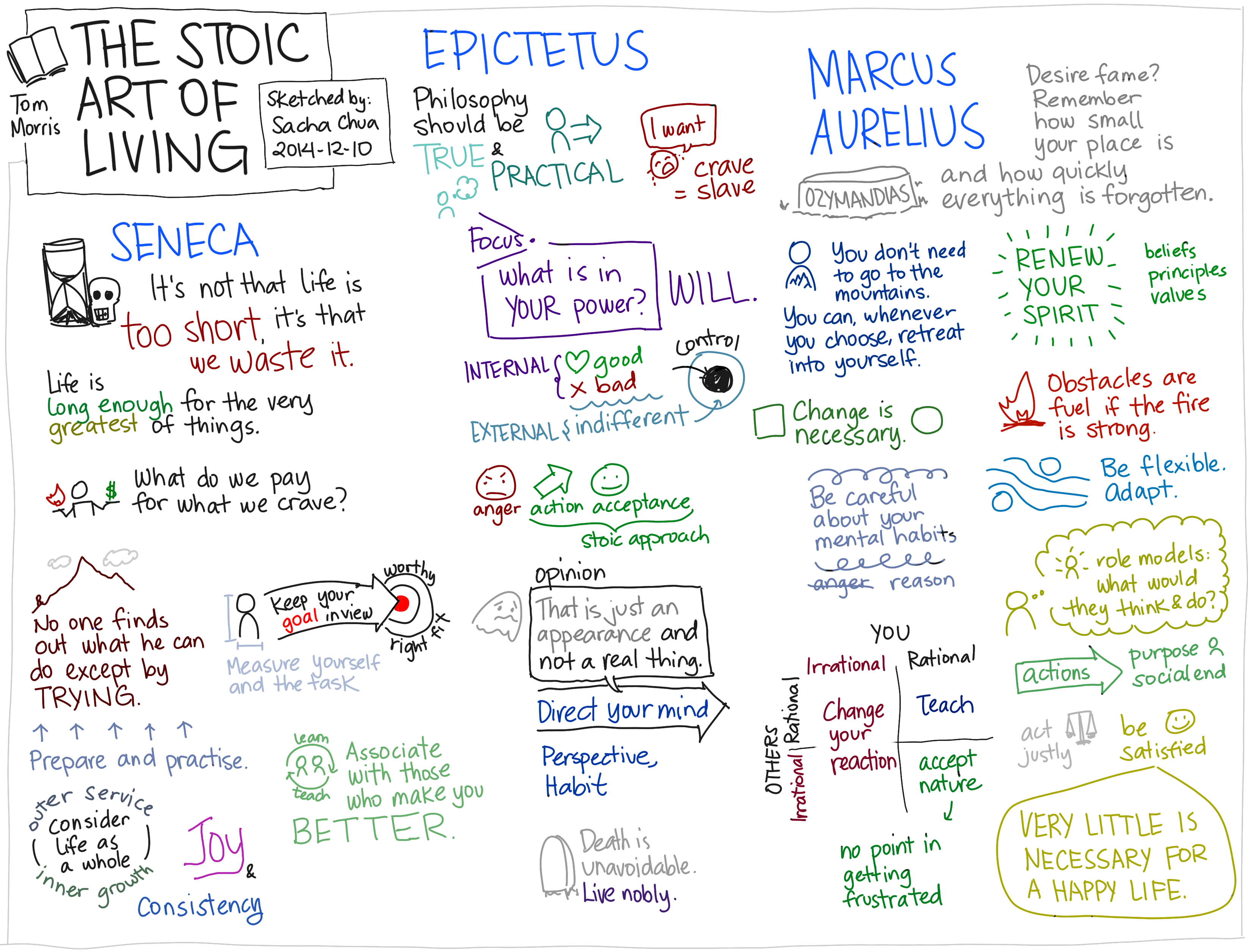Growth, experiments, and shifting my preferences
Posted: - Modified: | stoicism, philosophy, reflectionI've been thinking about how to respond to e-mails from former virtual assistants who are looking for additional work. I remember what it was like to feel that the world was a candy store of talent. My experiments with delegation led to interesting experiences. But at the moment, I can't really think of tasks that I want to specify or how much I would value someone else doing them.
Besides, I tend to get rid of tasks or write programs before I consider paying people to do things, so that tends to get in the way of delegation experiments. I find it more difficult to give instructions to people than to computers.
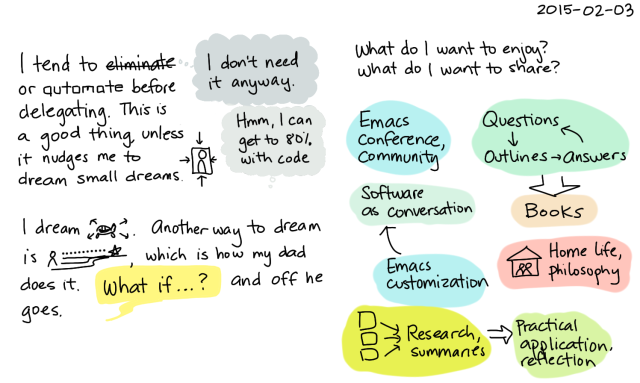
2015-02-03 Delegation and dreaming small dreams – index card #delegation
I tried thinking about ways I want to improve my life at the moment, and how I might want to accelerate those improvements. Compared to my answers from 2013, my current ideas feel closer to where I am, less of a stretch.
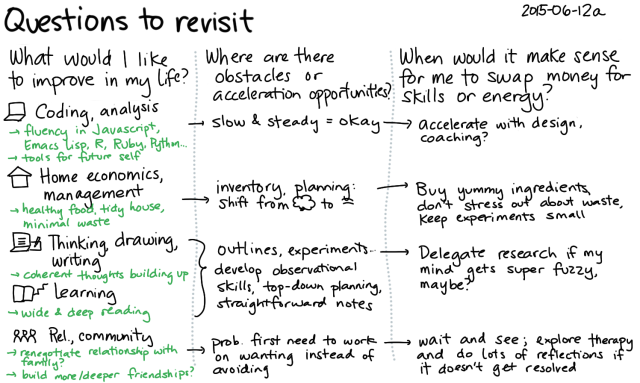
2015-06-12a Questions to revisit – index card #kaizen #experiment #delegation
Considering various ideas, I catch myself thinking, "Well, that would be nice to experience/be/have and I can imagine being happy with that, but I can also imagine being happy without that." I wondered whether that detachment came came out of avoidance or peace, and whether I wanted to tweak my balance of detachment and desire – ambition can also be quite a handy thing.
I know that a fuzzy brain dampens my ability to plan and anticipate. This is normal. I also know the fuzziness is temporary, so I'm not too worried about it. Still, I find it interesting to explore.
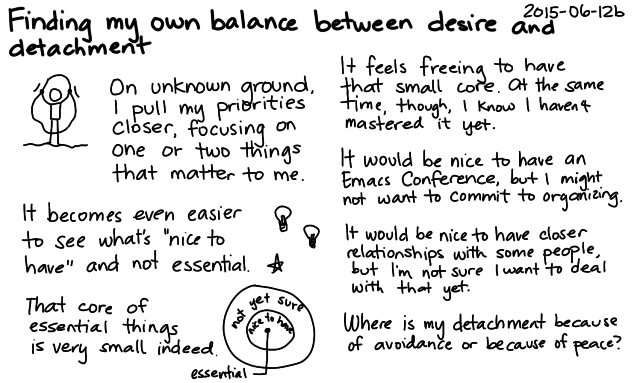
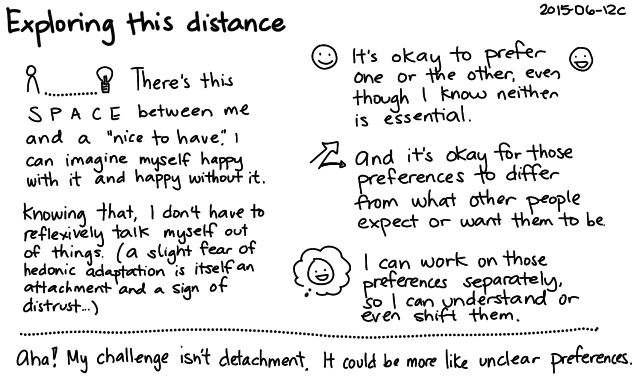
2015-06-12c Exploring this distance – index card #stoicism #philosophy #detachment #desire
On reflection, I think it's less about avoidance / running away from, and maybe more about not preferring something as much as I think I should. Consciously developing your preferences is an idea from Stoicism that I'd like to explore a little more.
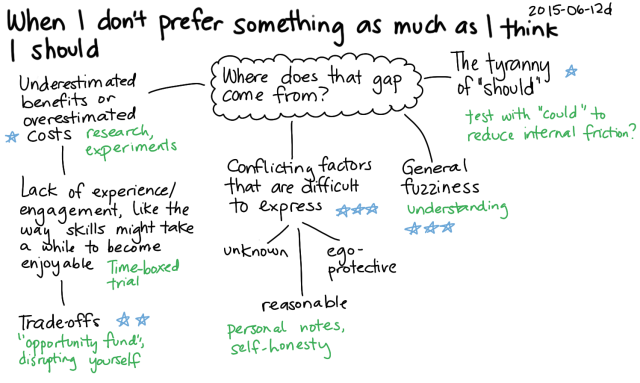
"Should" is a funny word, anyway. I avoid using that word with other people, but I sometimes still slip up and use that word for myself. So maybe it's more like I think it might be interesting if I had stronger, clearer preferences for things that were generally acknowledged to be good, but if I don't, that's more of an opportunity for learning than a personal failure.
In addition to general fuzziness, I think that gap happens when I have conflicting factors or motivations, and when I underestimate benefits or overestimate costs. I can untangle conflicting factors with reflection and honesty, even if sometimes that leads to uncomfortable realizations about my current self. I tend to overestimate costs more than I underestimate benefits, especially in terms of energy. In any case, my perception of one affects the other. I can work around this by giving things a shot, like the way skills often become more enjoyable the better you get at them.
Even when I have a good idea of the benefits and costs of different choices, sometimes it would be better for me to prefer things that have a lower short-term value than other things I could do.
A tangent: This might be pretty similar to how startups disrupt incumbent companies, actually. An incumbent company initially has lower marginal costs because of its investments. It would be more expensive for that company to shift to a new technology. On the other hand, a start-up doesn't have those sunk costs, so it's easier to invest in new technologies. Some startups succeed, getting to the point where they can beat the old technology in terms of return on investment. Other startups fail. But it's hard to tell which is which until you try, so it makes sense to have a bunch of start-up-like experiments even in larger companies.
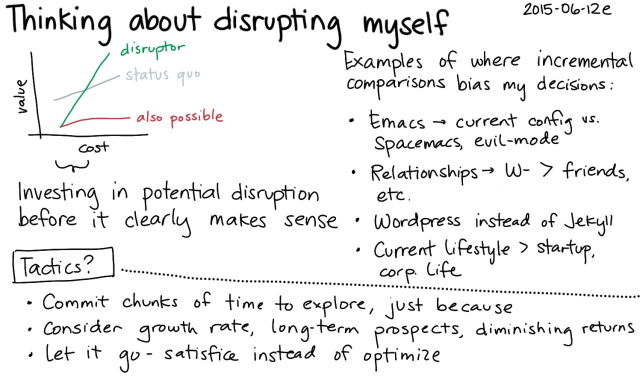
2015-06-12e Thinking about disrupting myself – index card #experiment #disruption
So, what would it be like to use these tools to develop my preferences? There's the slow evolution of my preferences through reflection and incremental improvement. At the same time, it might be interesting to mentally budget X% of my time for exploring things even if I feel a little meh about them: not just "Hell, yeah" or No, but also things I still feel mediocre at. ('Cause you don't get to awesome without being mediocre first!) Doing those small experiments to play with my understanding and preferences might even be easier during fuzzy times than during sharp times, since my opportunity costs are lower.
I might keep my goals and experiments a little close to myself at the moment, focusing on elimination and automation rather than delegation. Maybe I'll branch out again when I have a little more brainspace to manage and train people, since I don't want to get to the point where I resent other people because of the consequences of my own mediocrity in delegation. In the meantime, little by little, I'd like to get better at understanding my preferences, and maybe shifting them ever so slightly.

